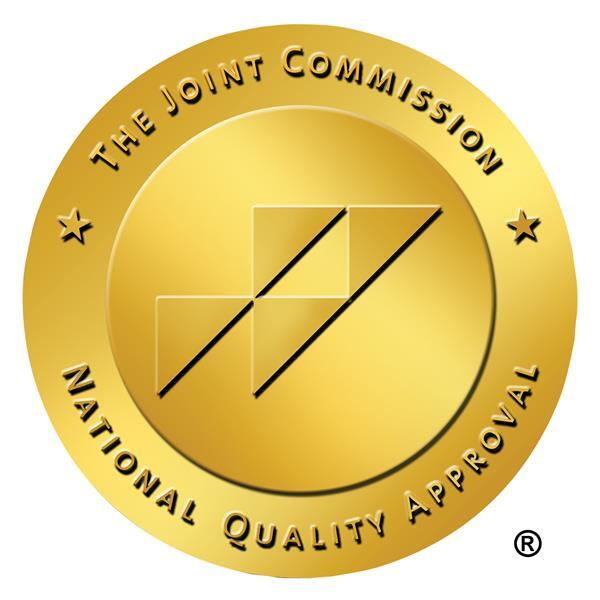The Journey to Amphetamine Abuse Recovery - Insights from MBO
Experience compassionate care, evidence-based therapy, and comprehensive support for a journey toward lasting amphetamine abuse recovery.
Table of Contents
Understanding Prevalence and Impact of Amphetamine Abuse
Imagine a world where focus feels forced, energy is fleeting, and anxiety becomes a constant companion. This isn’t science fiction; it’s the reality for many struggling with amphetamine abuse.
Amphetamine is a stimulant medication that’s often used to enhance focus, improve energy levels, and control behavior. While they offer benefits, their misuse can lead to a cycle of dependence and negative health consequences.

The Impact of Amphetamine Abuse
The impact of amphetamine abuse stretches far beyond individual people. It affects families, communities, and healthcare systems.
The risks associated with its use include physical and mental health problems and the likelihood of addiction. This highlights the urgent need for increased awareness and intervention strategies.
Addressing this issue is crucial for improving the health and well-being of those affected and for reducing its impact on society.
A Groundbreaking Path to Wellness with Mind Body Optimization
At Mind Body Optimization (MBO), we stand at the forefront of addiction treatment with our integrative recovery approach. We treat the whole person – mind, body, and spirit.
We understand that overcoming addiction requires more than just addressing physical dependence. Instead, it’s about healing the whole person for optimal, lasting health and wellness. Through our comprehensive, evidence-based practices, we aim to uncover and address the root causes of addiction.
Our compassionate MBO team iis committed to providing personalized, outpatient mental health services that foster sustainable change. With our experts guiding clients every step of the way, we offer accessible wellness solutions tailored to fit seamlessly into a person’s life.
Exploring Prevalence of Amphetamine Misuse
The misuse of prescription stimulants, including amphetamines, has become a significant public health concern.
Here’s how:
The Scope of Amphetamine Misuse
In 2021, 3.7 million people misused prescription stimulants, underscoring a widespread challenge. A particularly potent amphetamine variant, methamphetamine, was used by 2.5 million people.1
The consequences of such usage are dire. Over 32,000 lives were lost to methamphetamine overdose in the same year. These figures paint a stark picture of the human cost associated with amphetamine misuse.2
Emergency Responses to Amphetamine-Related Incidents
Emergency department visits linked to amphetamines have also increased significantly. From a modest 1.5% in 2014, such visits escalated to 8.3% by 2021, peaking at an alarming 9.9% in 2020.3
This trend not only reflects the increasing prevalence of amphetamine abuse but also highlights the severe health crises that often accompany it.
Health Risks and Mortality
Research indicates that the risk of death after a hemorrhagic stroke is higher with amphetamine abuse compared to cocaine. This adds another layer to the already substantial health risks associated with amphetamine misuse.4
Understanding Amphetamine Abuse
Amphetamines are stimulants that affect the central nervous system. They increase alertness, focus, and energy by stimulating brain pathways. When used as prescribed, they can effectively treat conditions like ADHD and narcolepsy.
But, misuse can lead to a host of negative effects, including:
- Increased heart rate and blood pressure: Amphetamines elevate the heart and blood vessels. This can increase heart rate and blood pressure.
- Insomnia: The stimulated state can make it difficult for people to fall asleep, leading to insomnia.
- Increased tolerance: Frequent use can lead to tolerance, resulting in addiction. This causes various mental and physical health issues.
- Mental health risks: Long-term use can lead to anxiety, paranoia, and even psychosis in some cases.
- Behavioral changes: This includes increased energy and talkativeness, aggressive behavior, and inappropriate actions.
Signs of Amphetamine Addiction
Some of the most notable signs of amphetamine addiction include:
- Cravings for amphetamines
- The inability to resist its use despite negative consequences
- Withdrawal symptoms when decreasing or stopping usage
Studies report that about 86% of people who stopped using amphetamines face tough withdrawal symptoms.5
Factors Contributing to Amphetamine Abuse
Amphetamine abuse can be caused by a variety of factors, including:
- Peer influence: Pressure from friends or being in groups where drug use is common can increase amphetamine abuse risk.
- Mental health issues: Psychiatric conditions like stress, anxiety, or depression may push people to use amphetamines as self-medication.
- Seeking better performance: Trying to boost work or sports performance can lead some to start using amphetamines.
- Curiosity: Young people might try amphetamines out of curiosity, which can lead to abuse.
- Genetics: A family history of addiction might make someone more prone to amphetamine abuse.
Amphetamine Abuse Recovery: Holistic Assessment and Treatment Planning
Amphetamine abuse recovery is a unique journey for each person. The foundation for effective treatment lies in a thorough assessment that goes beyond just the physical dependence on amphetamines. This comprehensive evaluation includes:
Physical Health
A medical evaluation examines any health conditions potentially impacted by amphetamine abuse. This allows for the development of a treatment plan that addresses both addiction and underlying physical issues.
Psychological Assessment
Understanding the psychological factors behind amphetamine abuse is crucial. This might involve exploring:
Social Environment
Amphetamine addiction rarely thrives in isolation. The assessment considers a person’s:
- Social support system
- Living situation
- Potential triggers within their environment
At MBO, we focus on comprehensive evaluation and an integrated approach. We consider every aspect of a person’s life that might be affected. This enables us to identify the fundamental reasons for addiction and pave the way for a more effective wellness journey.
Individualized Treatment at MBO
MBO designs individualized treatment plans specific to each client’s needs for effective amphetamine abuse recovery. These plans are not only designed to treat addiction but also reform a person’s lifestyle.
Our approach integrates conventional therapies with alternative methods for each person’s unique situation. This way, our focus is on the root causes of addiction, not just the symptoms.
Integrated Care
Holistic treatment at MBO goes beyond traditional therapies. It can incorporate complementary approaches that address the mind, body, and spirit.
Some of the most common among them include:
Medical Detoxification and Stabilization in Amphetamine Abuse Recovery
Medical detoxification is an important part of amphetamine abuse recovery in some cases. This initial phase helps clear the body of substances and prepares the person for the recovery process.
By safely removing toxins in a controlled environment, medical detoxification reduces the immediate physical risks associated with amphetamine withdrawal.
Pharmacological Support in Amphetamine Abuse Recovery
Some medications can help manage the symptoms during amphetamine abuse recovery.
Some of the most common among them include:
- Antidepressants: They can help with depression, fatigue, and low mood during withdrawal.
- Sleep medications: Short-term use of sleep medication can help get the rest the body needs for healing.
- Anti-anxiety medications: For people struggling with anxiety during amphetamine abuse recovery, medications can provide temporary relief.
Collaboration Between Medical and Therapeutic Professionals
Treating amphetamine addiction needs a collaborative effort from both medical and therapy professionals, including:
- Doctors
- Nurses
- Psychiatrists
- Counselors
By focusing on both physical and mental aspects of addiction, the team creates personalized plans. These personalized strategies cater to individual challenges and needs, increasing the chances of successful amphetamine abuse recovery.
CBT During Amphetamine Abuse Recovery
Cognitive-behavioral therapy (CBT) is a form of therapy that focuses on the connection between thoughts, emotions, and behaviors. In the context of amphetamine abuse recovery, it helps people:
Identify Unhealthy Thought Patterns
CBT helps recognize negative thought patterns that fuel cravings and lead to relapse. For example, someone might think, “I can’t handle stress without amphetamines.”
Challenge Negative Beliefs
Through CBT techniques, people learn to challenge these negative thoughts. They do so by examining the evidence and developing more realistic and empowering beliefs.
For instance, replacing the thought “I need amphetamines to function” with “I have the strength to overcome my challenges without substances” can be a powerful step in recovery.
Develop Coping Skills
CBT equips people with practical strategies to manage cravings and resist triggers. It helps them navigate challenging situations without resorting to amphetamine use.
These skills might include:
- Relaxation techniques
- Assertiveness training
- Building a healthy support network
The Role of Psychoeducation in Amphetamine Abuse Recovery
Psychoeducation teaches people about the effects of amphetamine abuse and offers strategies for recovery.
Through psychoeducation, clients can:
- Gain a comprehensive understanding of how amphetamines affect the brain and body
- Understand the long-term consequences of continued use
- Analyze the importance of lifestyle changes in the recovery process
- Get practical strategies to avoid relapse and maintain a drug-free life
Mindfulness-Based Practices During Amphetamine Abuse Recovery
Mindfulness-based practices at MBO incorporate self-awareness and assist in managing emotions during recovery from amphetamine addiction. By concentrating on the present, people become better at noticing their thoughts and emotions rationally.
By being more self-aware, people can spot signs of stress in the initial stages. They can also choose the right coping methods for themselves rather than turning to amphetamine use.
A mindful person tends to accept their past experiences. This helps people face their past without any rush of emotions and judgments.
Stress Management
Managing stress is vital in the fight against amphetamine addiction. This is because higher stress levels can lead to strong cravings for amphetamine and a potential relapse.
At MBO, we incorporate stress management strategies catering to physical and emotional well-being. This includes promoting:
- Healthy eating
- Adequate sleep
- Hobbies and interests
- Time management
Resilience and Coping Strategies
Being resilient while in amphetamine abuse recovery helps people bounce back from setbacks. A resilient mindset, supported by a strong network of friends, family, and peers, helps clients learn from past challenges and move forward.
This lays the groundwork for a smoother and more sustainable recovery journey.
The Role of Family and Loved Ones During Amphetamine Abuse Recovery
Amphetamine addiction might lead to families being disbanded from one another. But, comprehensive amphetamine abuse recovery presents an opportunity to bring the family together.
Educating and Supporting Families
Educating families about the nature of amphetamine addiction, its effects, and the challenges of recovery is essential. At MBO, we offer resources and sessions designed to equip families with the knowledge and tools they need to navigate amphetamine addiction.
As a family, the members learn how to support each other and encourage one another along the way. By empowering families, we aim to create a supportive environment for the individual’s long-term success.
Strengthening Communication and Relationships
Families play a proactive role in the amphetamine abuse recovery process. They do so by addressing communication barriers and encouraging a deeper emotional connection. Their involvement significantly contributes to a person’s ability to maintain sobriety and rebuild a healthy, substance-free life.
Family therapy sessions at MBO aim to:
- Improve dialogue
- Resolve conflicts
- Enhance mutual understanding
- Create a foundation of solid support for people in recovery
Relapse Prevention and Aftercare Planning
About 85% of people revert back to using substances within one year of treatment. This proves that even after treatment, people are vulnerable to relapse.6
At MBO, we understand that each client in amphetamine abuse recovery faces unique challenges and triggers that can lead to relapse. Knowing that, we focus on developing personalized relapse prevention strategies.
This process involves identifying specific triggers and risk factors for each person. By understanding and preparing for situations that may tempt or challenge the client, we help reduce the risk of relapse.
Maintaining Long-Term Recovery with Aftercare Strategies
Recovery from amphetamine abuse is an ongoing journey that doesn’t end after the initial treatment phase. This is why we encourage our clients to follow aftercare plans to ensure sustainable treatment.
This includes:
- Scheduled counseling and health check-ups
- Joining support groups
- Engaging in activities that stimulate physical and psychological health
These steps ensure continuity and sustained health. They motivate people to incorporate treatment methods in their daily lives, helping them to achieve long-term success.
Following a Community Centered Approach
A combination of support systems is crucial for preventing relapse and promoting a fulfilling, drug-free life. MBO helps clients connect with community resources such as support groups, educational workshops, and recreational activities that align with sober living.
These resources allow people to feel part of a community that understands and supports their journey to recovery.
Engaging with these networks:
- Helps maintain motivation
- Provides opportunities for personal development
- Reduces feelings of isolation

Empowerment Through Holistic Amphetamine Abuse Recovery at MBO
Amphetamine abuse extends beyond physical dependence, impacting people’s mental, emotional, and social well-being.
MBO’s holistic assessment and personalized treatment plans recognize the interconnected nature of addiction. That’s why we address not only the symptoms but also the underlying factors driving amphetamine abuse.
A Whole-Person Approach to Healing
By integrating evidence-based therapies and complementary approaches, MBO empowers clients to reclaim their lives from amphetamine abuse.
From cognitive-behavioral therapy to mindfulness-based practices, each aspect of our treatment is tailored to meet the unique needs of every client. This helps foster resilience and promote sustainable change.
Contact Mind Body Optimization Today
If you or someone you love is struggling with amphetamine addiction, don’t face this challenge alone. Contact MBO today to explore our comprehensive programs and take the first step toward a healthier future.
With the right support system and a holistic approach to recovery, you can overcome amphetamine addiction and live a life brimming with happiness.
Resources
- https://nida.nih.gov/publications/research-reports/misuse-prescription-drugs/what-scope-prescription-drug-misuse
- https://nida.nih.gov/publications/research-reports/methamphetamine/what-scope-methamphetamine-misuse-in-united-states
- https://www.ncbi.nlm.nih.gov/pmc/articles/PMC10037744/
- https://jamanetwork.com/journals/jamapsychiatry/fullarticle/210017
- https://www.sciencedirect.com/science/article/abs/pii/S0376871697001609
- https://www.ncbi.nlm.nih.gov/pmc/articles/PMC3674771/






